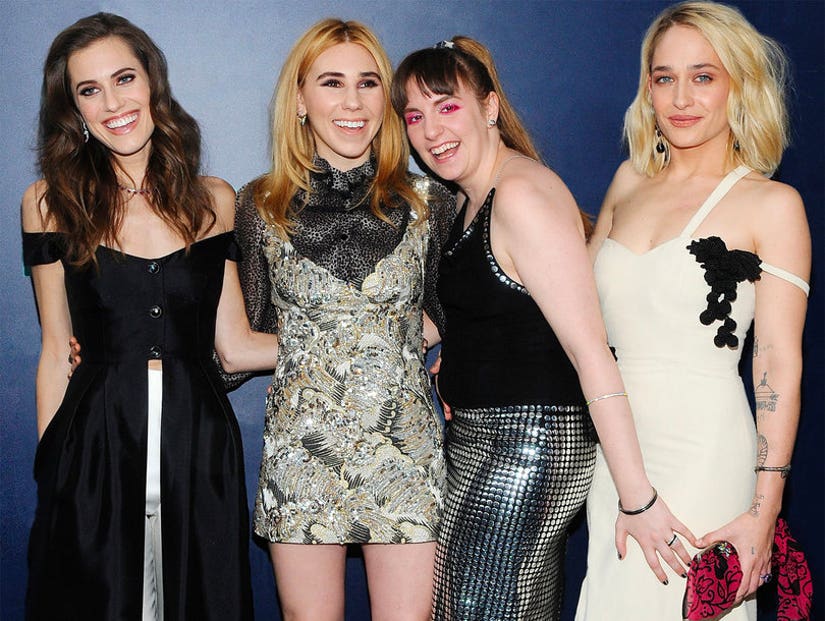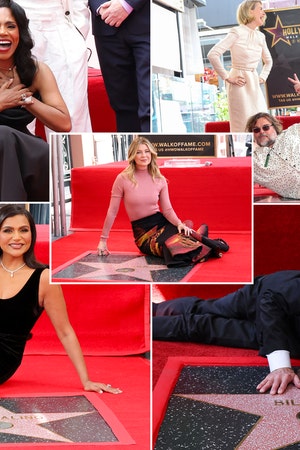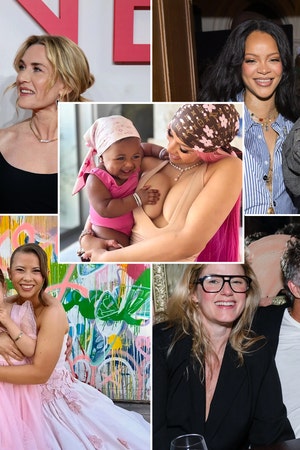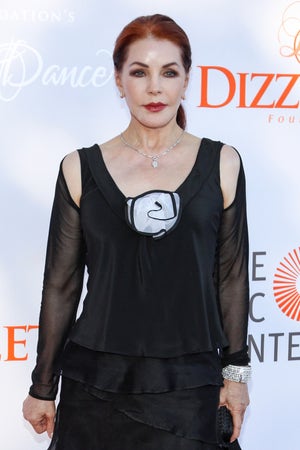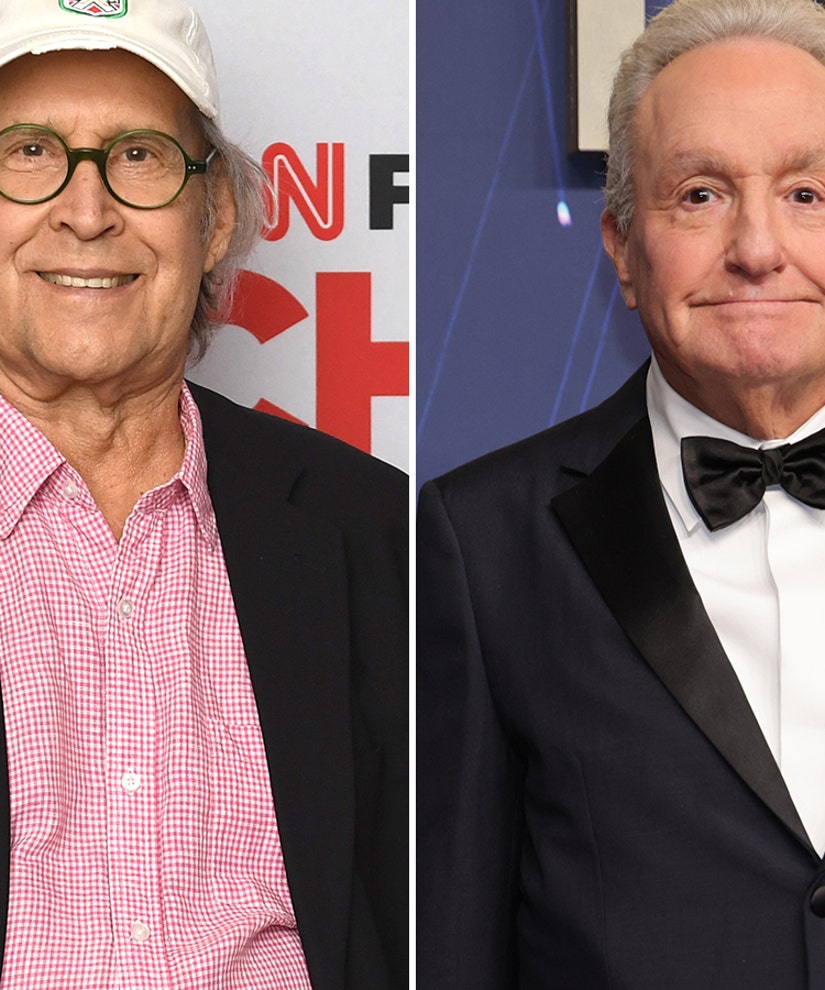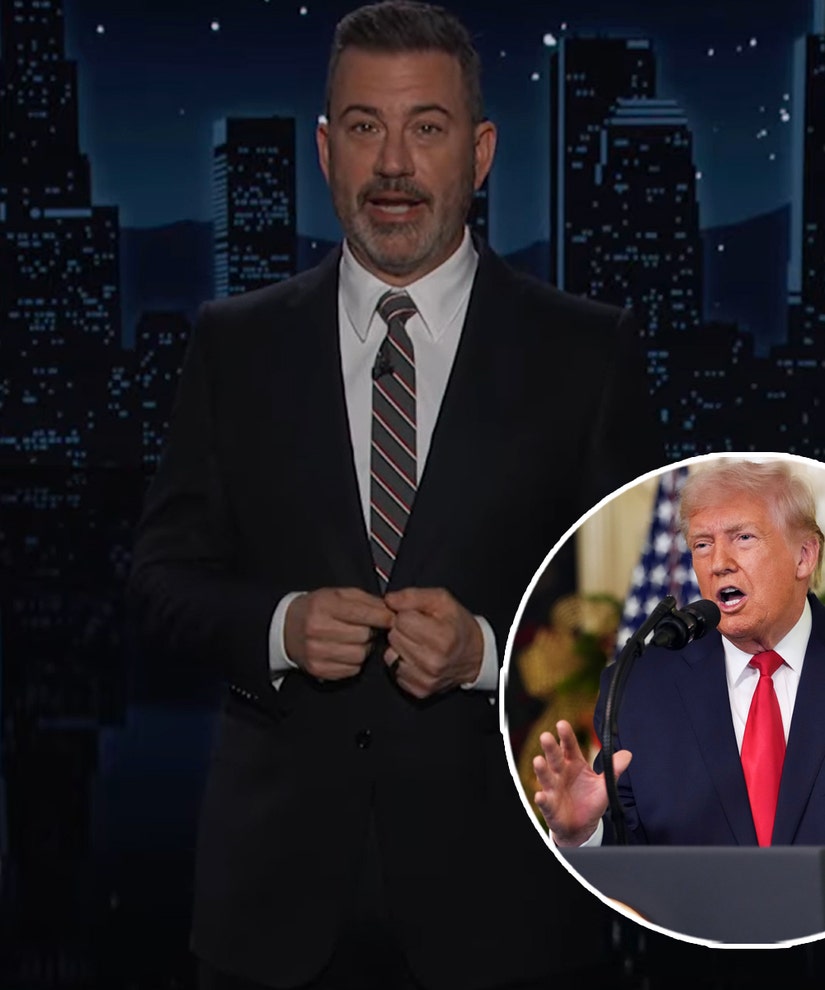Let's be honest. No one was really watching "Girls." Sure, television critics were all over it in the early days, and have checked in here at the end, but we're talking about a show that only cracked a million viewers three times ... out of 61 episodes (ratings are not in for the series finale). And yet, this is an important show for several reasons.
What Lena Dunham's creation lacked in viewers it made up for in noise. What we mean is that the show simply demanded to be noticed. Way more than a million people know who Lena Dunham is and what "Girls" was trying to do, which means it tapped into the cultural conversation in a way that is rare for a television show.
Whether you want to give "Girls" credit or just call it a coincidence, women's issues moved into the forefront of the social consciousness at the same time this show was finding its voice. Dunham herself was one of the first women to fearlessly fling aside her clothing and declare that all bodies are beautiful.
 Getty
Getty
What 'Girls' Fans Are Saying About the Series Finale: The Good, the Bad and the Ugly
View StoryBODY POSITIVITY
When she first stripped down it in 2012 on the show, the reaction was shock, ridicule and outrage. Since then, body positivity has become a movement in this country; particularly in the online culture. There are social media stars who have risen to fame solely on their message of body positivity and by not having the supermodel frame.
Would they have accomplished that without Dunham first stripping down and demanding that we have a conversation about this issue? That we stop shaming women for being anything bigger than a size zero? That we accept that real women have real bodies and it's okay to see them?
From Playboy model Dani Mathers facing charges for posting a picture of another woman in a locker room online and mocking her physique to Lady Gaga getting critiqued through social media for daring to show a stomach that wasn't washboard from every angle and every position at the Super Bowl, this is clearly a problem that isn't going away. But it is being talked about.
A decade or so ago, those attacks would have likely gone unnoticed or simply been accepted as the way people are. Now, people are standing up for others. The attackers are still there, but there are vocal defenders now, too. The social media outpouring over Gaga's Super Bowl performance was more in support of her physique and performance than over any physical imperfections she may have displayed.
Nobody got it worse than Dunham, who was blasted viciously and cruelly for going nude on her show. Somehow it was deemed okay to demand that Dunham put her clothes back on while at the same time wishing her co-stars would get nude more often.
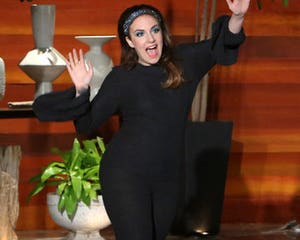 Michael Rozman/Warner Bros.
Michael Rozman/Warner Bros.
Lena Dunham Thinks People Calling Her a 'Hypocrite' for Losing Weight Is 'Just So Crazy' (Video)
View StoryFEMALE SEXUALITY
Even "Sex and the City" had a certain romanticism to the sexual exploits of its main characters, and certainly in its visual portrayal of them as sexual beings. Halle Berry got a lot of attention for offering so-called "ugly sex" in the film "Monster," and it is this attitude that informed how Dunham approached sex and sexuality in "Girls."
This was very much a show grounded in the real world, and in the real world we don't have sex with soft lighting and even softer camera lenses. It is raw and naked, and sometimes not all that flattering, but we do it anyway because it's sex and ... well, yeah.
So she showed it as it was, and people were up in arms. Why is she just walking around without her clothes on? Why are they just talking half-naked and lounging around. Doesn't she see that her stomach rolls are visible from this angle?
It was more than just how the sex was portrayed, but coupling that with the fact that these women made bad sexual decisions. They were young and stupid and they screwed up a lot in their personal lives as well as their professional lives.
We live in a culture that likes to high five men for getting another notch on their bedpost while slut-shaming a woman for doing far less. This double-standard was put to the test time and again on "Girls" as these women proved themselves sexual beings unashamedly. They wanted it and they went out and got it ... just like many real women do. And it doesn't make them lesser people.
Amy Schumer talks openly about her sexuality and has received criticism for it, while her male counterparts are applauded for their exploits. As long as this remains the case, this is a conversation that needs to happen. "Girls" made us uncomfortable in ways that it needed to so we would get our heads out of our prejudices and open our eyes to the world around us.
 Getty
Getty
Here's How 'Girls' Ended
View StoryCOMPLEX FEMALE ROLES
Along those same lines, Dunham and company actually went out of their way to make their characters anti-heroes. Women on television and film are rarely allowed to be the "bad boy," and yet those are some of the most beloved male characters. If a woman proves to be narcissistic and selfish and shallow, she's a bitch and no one likes her. If a man shows this, he's a rich, nuanced character with hidden depth.
Dunham challenged people to not see the depth in Hannah and Jessa and Marnie and Shoshanna. These were not caricatures of people, but instead fleshed out personalities with both good and bad qualities. That viewers sometimes didn't know if they liked them or not was kind of the point.
Don Draper was unlikable a lot of the time on "Mad Men," as was Walter White on "Breaking Bad," and those are some of the most admired character performances of the modern era. It's more challenging for a woman to go complex because their roles are almost always written all good or all bad, with little to no nuance.
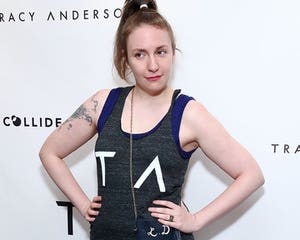 Getty
Getty
Lena Dunham DGAF About Her Weight Loss, Says It 'Isn't a Triumph'
View StoryFEMINISM
Seen as a dirty word by some, the feminist movement has picked up steam in recent years, and "Girls" was a big part of that conversation. The show pushed buttons and made people uncomfortable about how it portrayed young women, which allowed the responses to come out. Why does it make you uncomfortable? Is it the content of the show, or your prejudicial expectations?
In most cases, it's a case of passive sexism. Girls are supposed to be pretty, but here's Dunham with no makeup on looking like a mess. I don't want to look at that. Okay, but that's what she looks like and you don't mind looking at out-of-shape men in television and movies. So is she the problem, or is it perhaps you?
The show fearlessly tackled issues like inequality in the workforce and violence against women. "Girls" didn't have the answers, and in many cases the behavior of the four main characters was antithesis to most feminist beliefs, but it pushed the conversation forward, and the conversation is still picking up steam.
Never before has Hollywood been so scrutinized regarding the roles of women both on-screen and behind-the-scenes. Dunham was one of the loudest female voices on a television landscape severely lacking in them. And like her or not, the attention "Girls" got has helped many other female creators get their own visions on the air, like Jill Soloway ("Transparent") and Rachel Bloom ("Crazy Ex-Girlfriend").
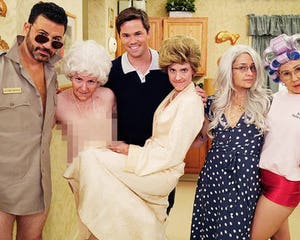
'Girls' Cast Spoofs 'Golden Girls' in Mashup on 'Jimmy Kimmel' (Video)
View StoryMILLENNIALS
Like it or not, "Girls" was television's first attempt to explain the Millennial generation to the masses. This misunderstood generation is not generally seen in a good light by the generations that came before them, and even the one coming up after them. They are seen as self-absorbed and entitled, unwilling to work hard to achieve success. Instead, they have their hand out awaiting that unearned trophy like they used to get for just showing up to little league as a kid.
Dunham took viewers inside the minds of this complex generation and quite honestly didn't do them any favors. Hers wasn't a flattering portrayal of her peers, but rather an exploration of their shallow narcissism, their insecure neediness, their entitled laziness, and their absolute refusal to become functional adults.
This is a generation that is still trying to find itself. In the shadows of the retiring Baby Boomers and impatient Generation X, they are eager to prove themselves better than they've been portrayed, but they are battling some of the real issues Dunham brought up about them.

Lena Dunham Shocks Maria Shriver With a 'Penis' Question on 'Today' Show (Video)
View StoryCONVERSATION
And that's why "Girls" was so important for television. Not because it was great television -- your mileage may very -- but because it started and pushed forward conversations that needed to happen. "Girls" is culturally significant in a way very few shows have been. "The Golden Girls" pushed the envelope in how it explored senior citizens, while "Shameless" is exploring poverty in a very raw way. "Girls" took a look at the state of young women in the world today and had something to say about it.
It doesn't matter if it said it well or not. It matters that it said it, and got people talking about it. For all the viewers "Girls" didn't have, there are millions of people who are thinking about feminism and equality and body positivity that might not be were it not for this show.
It would be nice to say that society would have progressed to this point without Lena Dunham writing and running her own show and taking her clothes off on television to the derision of millions, but we'll never know. What we do know is that she did, and a cultural revolution is underway.
It's a revolution that continues with the likes of Jill Soloway and Rachel Bloom steering their own feminine visions on television, while Mindy Kaling and Julia Louis-Dreyfus explore the many layers of modern successful women in "The Mindy Project" and "Veep," respectively. Ilana Glazer and Abbi Jacobson prove that women can be awful and real and still funny every week on "Broad City." Gillian Jacobs is fearlessly awful on Netfix's "Love," and a huge reason the show is such a success.
Perhaps the loudest voice for the female experience on the television landscape is Netflix's powerhouse ensemble of women inmates on "Orange Is the New Black," created by Jenji Kohan, while Amy Schumer is the most vocal proponent of feminist ideals. And like Dunham, Schumer has plenty of detractors.
That's okay, though. It's not about liking the voices that shake the world. It's about having them be heard so we can respond and debate and not shy away from important social conversations. It is these conversations that move society forward, hopefully in the right direction.

